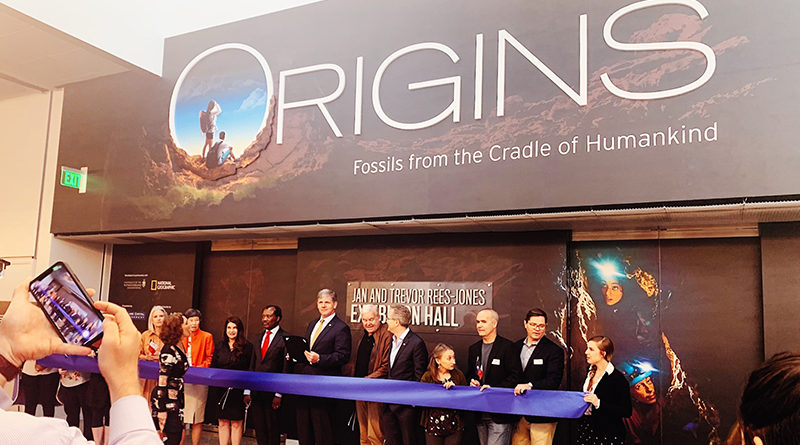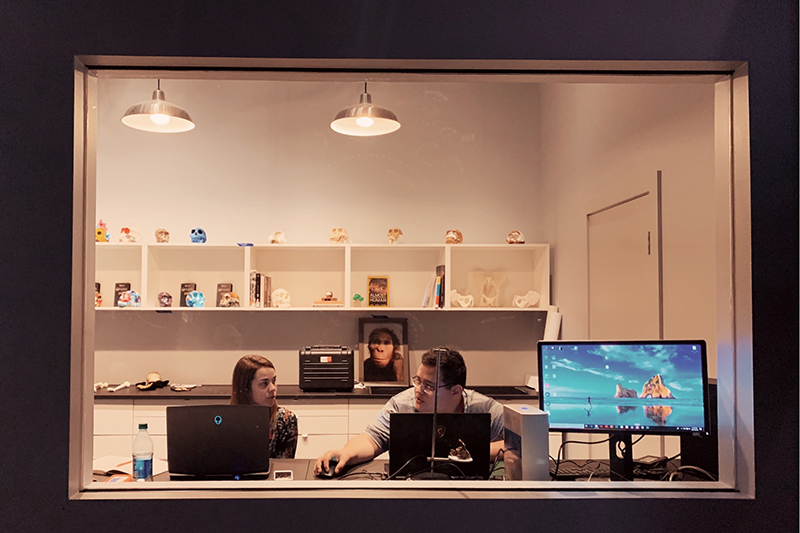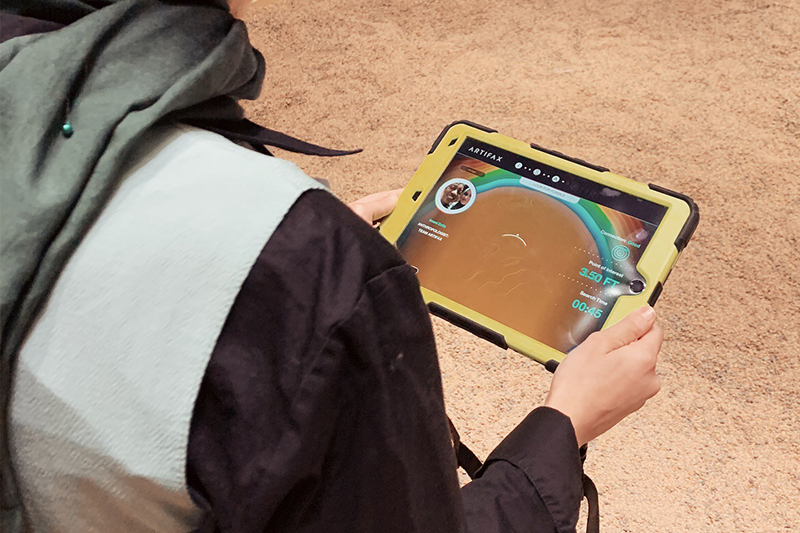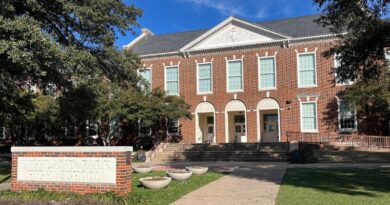Fossils from the Cradle Now at the Perot
Dallas residents and guests from all around have a once-in-a-lifetime opportunity to view the newly discovered fossil skeletons from the caves of South Africa located in the heart of the Cradle of Humankind World Heritage Site.

Now open to the public, these two ancient human relatives fossils, Australopithecus sediba and Homo naledi, will be on display in both fossil form and as hyper-realistic, life-size sculptures in the world-exclusive exhibition, Origins: Fossils from the Cradle of Humankind, at the Perot Museum.
Origins will mark the first and likely only time these fossils will be leaving South Africa and be displayed in the U.S. This also marks the first time that ancient hominin fossils have been transported for public display in North America since “Lucy” toured between 2007 and 2013. Accidentally discovered in 2008 by then nine-year-old Matthew Berger, Australopithecus sediba were some of the most complete hominin skeletons known in the fossil record at the time. Just five years later, the first fossils of another new ancient relative, Homo naledi (formally described in 2015), were unearthed in South Africa by a Wits University team including the Perot Museum’s Dr. Becca Peixotto, director and research scientist of the Center for the Exploration of the Human Journey. Together, these two fossils provide further evidence for the complex processes of human evolution.
“Origins: Fossils from the Cradle of Humankind will be a historic opportunity to explore our shared human history by coming face-to-face with the actual fossils of our ancient ancestors,” said Dr. Linda Silver, Eugene McDermott Chief Executive Officer of the Perot Museum.
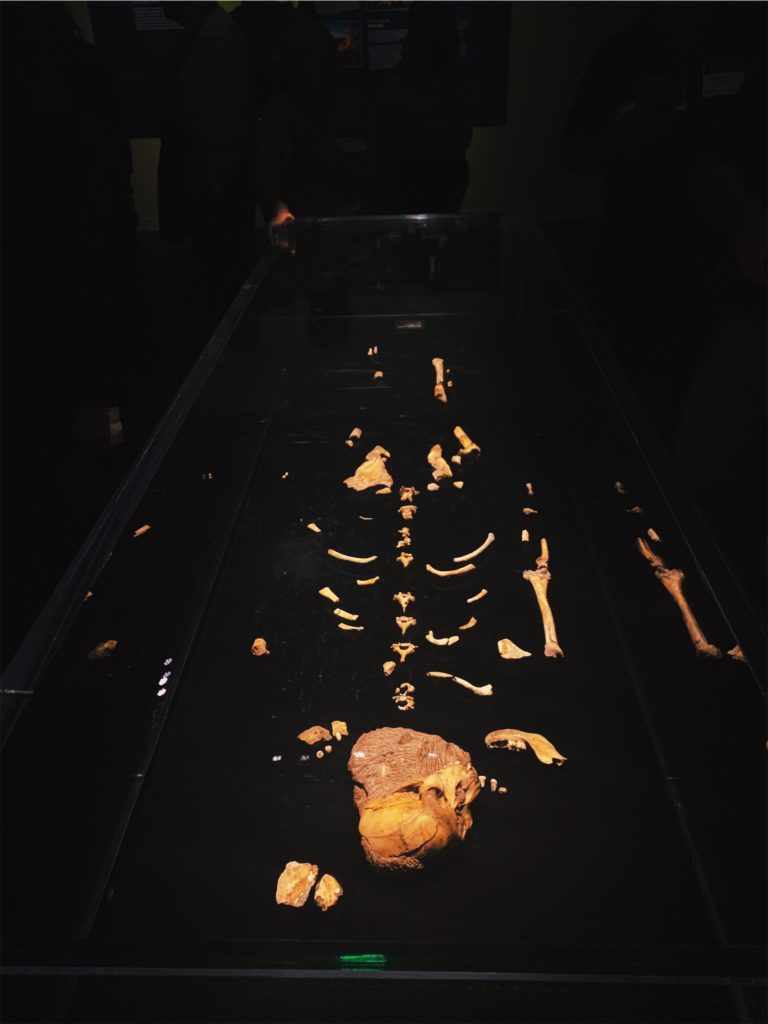
Paleoanthropologist, University of the Witwatersrand Phillip Tobias Chair in Human Origins and National Geographic Explorer at Large, Professor Lee Berger, led the groundbreaking discoveries alongside a diverse, multinational scientific team of women and men. Professor Berger had to select from a global pool of candidates after issuing a call on social media seeking experienced scientists/cavers who could fit through the 7-inch wide cave opening where the Homo naledi dig site was located. These individuals – dubbed “underground astronauts” – help retrieve the fossils through the narrow chute not far from the cave’s entrance and now they’re here in the Dallas area. The Perot Museum was chosen to host the first exhibition of the fossils, due to the Museum’s close relationship with Professor Berger, Lyda Hill, and Wits University. Additionally, the exhibit aligns with Perot’s recently launched Center for the Exploration of the Human Journey, a global hub for education, communication and research in the study of human origins.
The bilingual (English and Spanish), 5,000-square-foot Origins exhibition tells the stories of these amazing discoveries, from the young Matthew Berger stumbling upon the A. sediba fossil to the breathtaking journey of six female scientists – a.k.a “underground astronauts” – who excavated the bones of H. naledi from the deep cave near Johannesburg, South Africa.
The exhibition also features a simulated excavation site that will provide an immersive, a hands-on experience that’s fun for both kids and adults. Role-play using the same ground-penetrating technology that paleoanthropologists and archaeologists rely upon for fossil exploration. The final gallery will transport visitors to southern Africa with a display of native animal taxidermy, including a rare white rhinoceros, cheetah, African lion, spotted hyena and klipspringer.
A glass-encased visiting scholar lab within the exhibition will provide research access to the fossils for scientists who might not otherwise have an opportunity to study them – and guests will enjoy the opportunity to view this research right before their eyes. The Museum will also create professional exchange and development opportunities for early-career scientists from Africa and across the world. Additionally, a special Treasures of southern Africa display will celebrate the various discoveries and innovations of the lower continent, including the world-class research center at Wits University and other African contributions.
“It is our pleasure to share these South African national treasures with the people of Texas and the rest of the world. Science should have no boundaries, and our collective knowledge should be made available to the entire human community,” said Professor Adam Habib, Vice-Chancellor and Principal of Wits University.
Origins: Fossils from the Cradle of Humankind runs through March 22, 2020. Tickets to Origins are timed entry and available on a first-come, first-served basis. Visitors are strongly encouraged to purchase advanced tickets at origins.perotmuseum.org.

